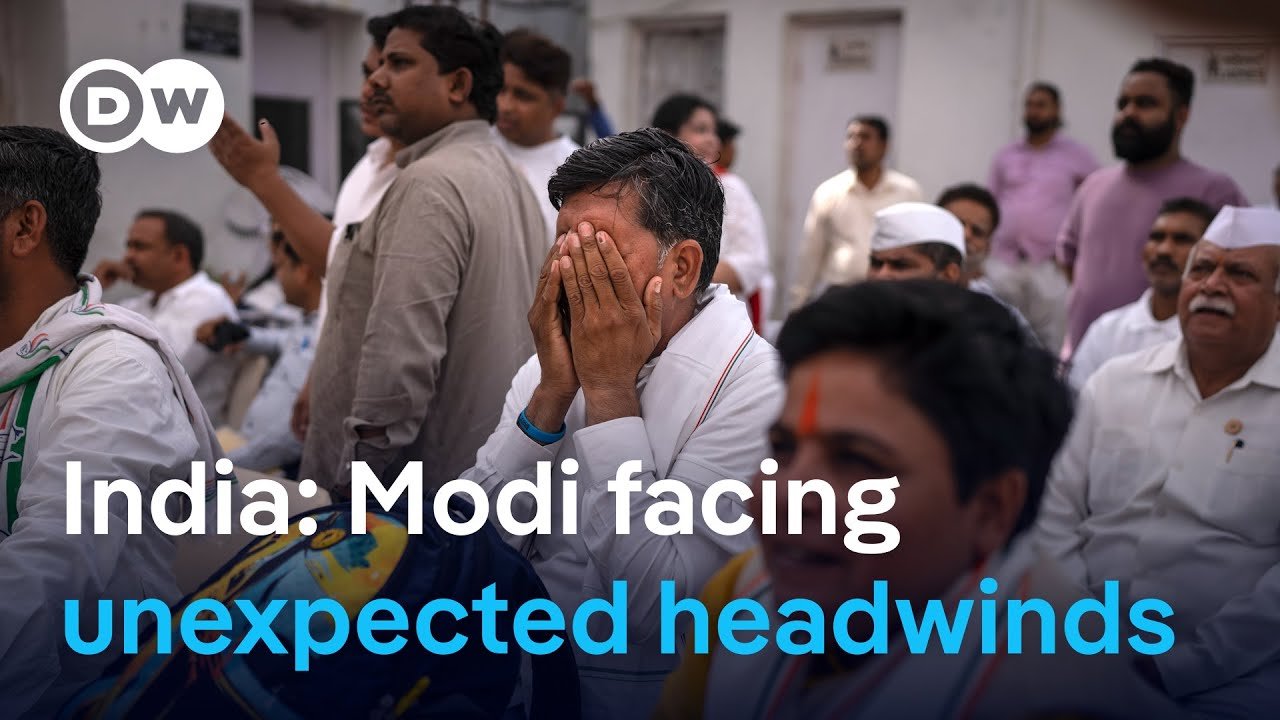- The BJP and its National Democratic Alliance are leading with approximately 290 seats, beyond the required majority but below the expected landslide victory.
- The opposition India Alliance, featuring the Congress party, is leading in around 230 seats.
- Prime Minister Narendra Modi is set to achieve a historic third term, a feat only matched by one of India’s founding fathers, Jawaharlal Nehru.
- Despite retaining power, the BJP has lost seats compared to its 2019 performance, especially in key states like Uttar Pradesh, indicating a diminished majority.
- Voter sentiments on the ground in Uttar Pradesh and other areas reflect concerns over unemployment, inflation, and rural distress.
- The BJP’s campaigning took an aggressive anti-minority tone, which seems to have backfired according to some analysts.
- Regional parties have played a significant role in this election, indicating a possible shift in voter trust away from the main national parties.
- The election results suggest a move towards more coalition-based politics, requiring the BJP to potentially adopt a more consensual approach in governance.
- Issues such as unemployment and rising living costs were prominent in the electorate’s mind, influencing their voting decisions.
- The Congress party and its allies view their performance as a moral victory, interpreting it as a rejection of the BJP’s divisive politics.
- Voter turnout was affected by the excessive heat, contributing to a lower participation rate compared to previous elections.
DW News is a global news TV program broadcast by German public state-owned international broadcaster Deutsche Welle (DW).
AllSides Media Bias Rating: Center
https://www.allsides.com/news-source/deutsche-welle-media-bias
Official website: https://www.dw.com
Original video here.
This summary has been generated by AI.

Leave a Reply